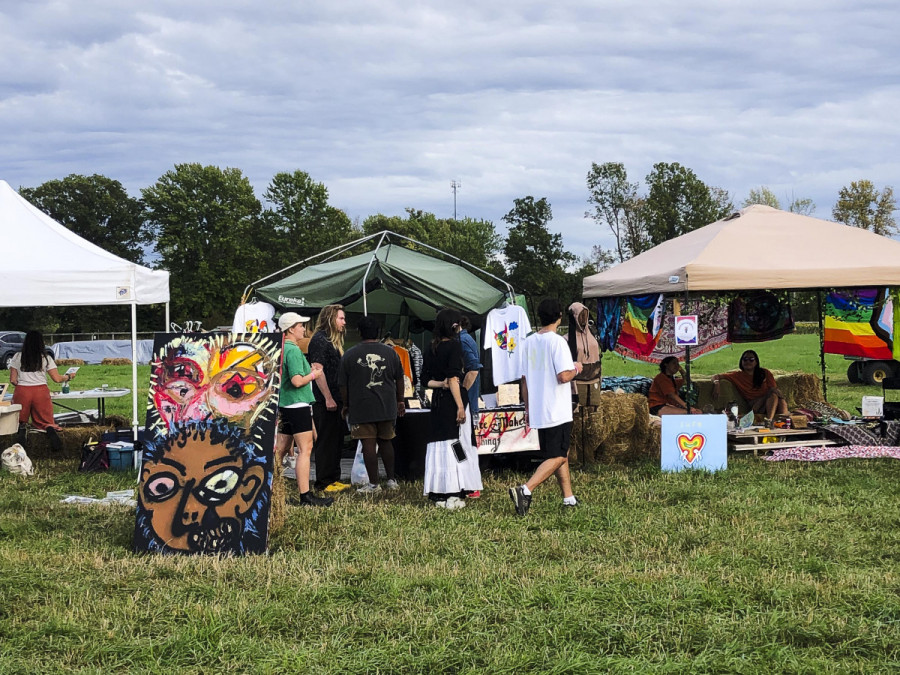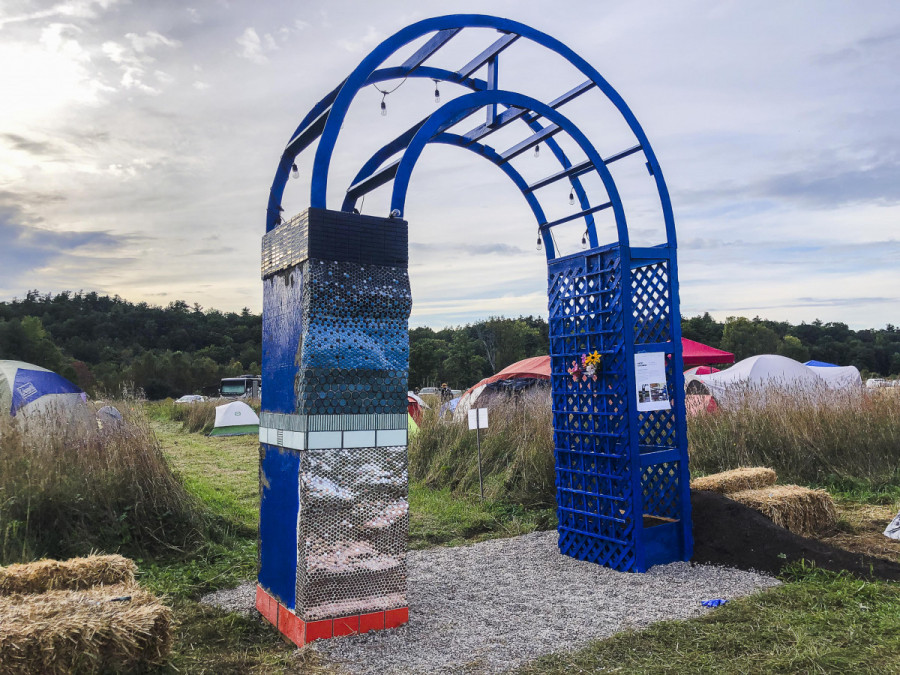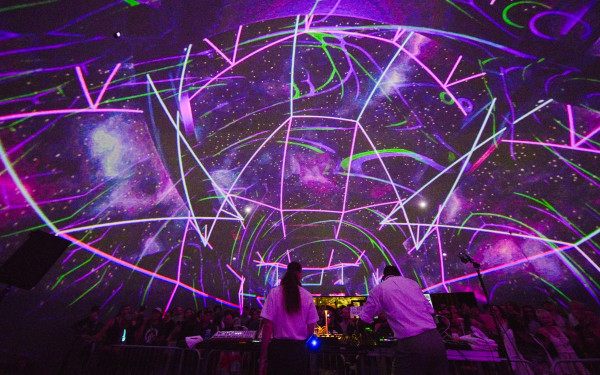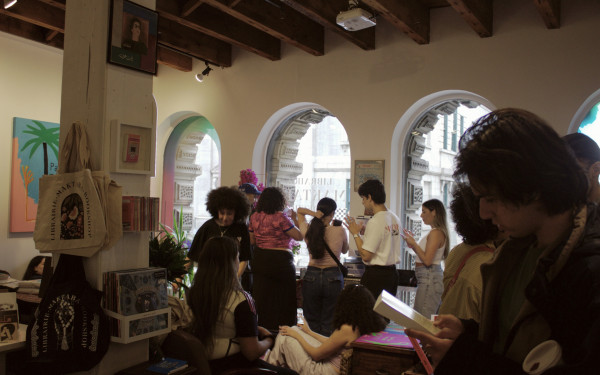Cloud 9: Partying in good conscience
Ontario festival hoping for more sustainability in the festival industry
Energetic beats ring across the field at No.9 Gardens in Lyndhurst, Ont. This 40-acre slice of paradise is an organic farm, sustainability center, and home to the second edition of Cloud 9—an annual, eco-electronic music festival. This year’s edition took place on Sept. 9.
At its core, this sustainable festival is a carbon-neutral, not-for-profit event seeking to raise money for Ontario’s No. 9 project. The inspiration behind their signature number hails from the nine pillars of sustainability they try to address: transportation, green space, water management, waste management, green building design, civic engagement, public art and design, agriculture and food security and alternative energy.
“The mission of No. 9 is to provide the next generation with a toolkit to lead sustainable initiatives. Specifically to use the power of art and design as a way of cultivating new conversations and creating change around sustainability,” says one Cloud 9 co-founder, Hanna Davies. The festival builds upon this goal by uniting people from Kingston, Montreal and Toronto with a passion for climate action and electronic music.
Surrounded by an unobstructed skyline, lush trees and Leeds, Ont. farmland, it’s easy to get swept away by the site’s natural beauty. Art workshops with water colour painting, collaborative mosaic making and sustainable vendors are also onsite.
“This is my favourite day of the year,” Abigail O’Connor says, standing behind the Kingston Youth Climate Action booth. Like much of the festival, O’Connor’s stand pays homage to the power of merging art and sustainability, and is kept in good company with other climate organizers nearby. Behind them, Korea Town Acid’s moody lush set hypnotizes the crowd from the main stage.
“We’re trying to introduce Kingston to more underground house, electronic and techno music, because they don’t have a super active scene,” Davies says. “But at the same time, we want to make it so that people in Montreal and Toronto, who are already fully in the scene, and appreciate that kind of music, can come out and experience it.” For this reason, the Cloud 9 team hosted campers this year, letting out-of-towners sleep at the farm for either one or two nights.
For Montrealers, this meant being able to see the city’s own Sterling Grove and Pascale Project perform. These overnight stays also led to larger crowds and connections, with about 500 people exploring the grounds. “The most meaningful part was the people this year,” Davies says. “Last year, we didn’t have it as a camping festival, it was only a one day event. So it was hard for people to settle into what the experience was supposed to be. But this year it just felt like the relationships between people were so much deeper.”

While festivals are powerful conduits for connection, they have also earned a reputation for their impact on the environment. Throughout the years, festivals have received criticism for the amount of waste and carbon emissions they produce. This has led some Montreal festivals to develop their own sustainability initiatives, like Osheaga’s food kiosk plastic ban, and the Jazz Festival’s installment of waste sorting islands. While Cloud 9 does not amass the same crowd or resources as Osheaga, it is inspiring to see how a festival rooted in sustainable action can grow into something bigger. These measures weren’t created in response to public pressure, but rather, as a core component without which the festival would not exist. Although the festival organizers are thrilled to see Cloud 9 expand, they plan to cap it at about 2,000 people, “to be conscious of the capacity of the land,” Davies says.
As for the tangible sustainability initiatives taken on by Cloud 9, one of the most impressive feats, would be their commitment to carbon neutrality. This year, the festival teamed up with one of its sponsors, Canada’s Forest Trust, to offset all of its carbon emissions. “We actually offset way more than necessary because we wanted to be safe,” Davies says. “We didn't know how many tickets we’d sell, so we covered the emissions for 800 people.”
Equally successful was Cloud 9’s mission to unite festival-goers through creativity and climate action. By bringing a sense of levity and whimsy to a heavy-hearted and- sometimes-overwhelming topic, the festival opened dialogue to celebrate wins within the community.
“We try to make Cloud 9 not necessarily just about us, as the organizers, or just about the charity No. 9, but really about our generation all working together,” Davies says. “So that’s why we want to move into more collaborative events. Because we’re not trying to be our own thing—because that’s also not sustainable. We’re trying to use our festival as a platform to celebrate what other people are already doing.”
This mission did not get lost in translation among those at the festival either.
“I think by focusing on art and music as a pathway for activism, it draws people in and makes climate activism and sustainability work feel more accessible,” O’Connor says. “A lot of people, myself included, are extremely overwhelmed by the doom and gloom of the climate crisis especially after the summer we’ve had with extreme weather events. It's a good reminder that every effort and intention counts, and is valuable in shaping the world we want to create for ourselves.”

Looking forward, leading to next year’s festival, the Cloud 9 team are looking to collaborate on smaller pop-up events in neighbouring cities. They also plan to publish a report by the end of the year detailing all of the event’s sustainability initiatives and outcomes. This could help influence some sustainable changes in Montreal’s rich music scene as well, and hopefully lead to more eco-conscious festivals going forward. Ultimately, Cloud 9 shows that planning for a sustainable future is not just about sacrifice and reduction.
“You can live sustainably and it can feel just as fulfilling, if not more,” Davies says. “It doesn’t have to feel like a life with less, but actually like a life with more.”

_1_900_675_90.jpg)


Frédérique_Ménard-Aubin-8588_(1)_(1)_1_600_375_90_s_c1.jpg)


